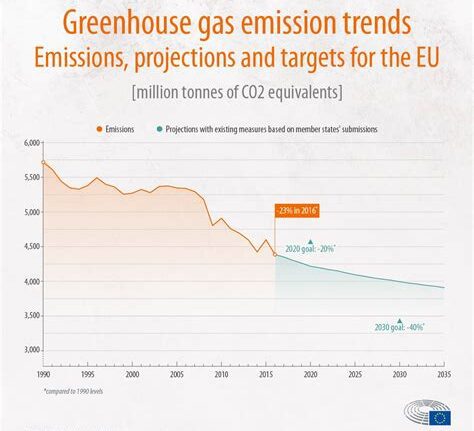A ship sails across the vast Pacific Ocean, its destination shrouded in secrecy. But what lies beneath the ocean’s surface is far from hidden. Deep within the seabed of international waters lie precious metals like copper, cobalt, and manganese – essential components for manufacturing electric-car batteries. The race to extract these valuable resources has sparked a heated debate between mining companies eager to tap into this lucrative market and environmentalists concerned about the potential ecological consequences.
The saga took a dramatic turn when a mining company made headlines by revealing confidential negotiations with the Trump administration to bypass a United Nations treaty that governs seabed mining. This revelation sent shockwaves through environmental groups and diplomatic circles, igniting fresh concerns about the future of deep-sea exploration.
“The proposal represents a radical shift in accessing seabed deposits essential for electric cars.”
For over three decades, the International Seabed Authority has held sway over regulations concerning seabed mining in international waters. With more than 160 nations ratifying its authority, the ISA plays a crucial role in overseeing activities that could impact marine ecosystems on a global scale. However, with regulations still under development and uncertainty looming over the timeline for finalization, impatience seems to have set in among key players in the industry.
Enter Gerard Barron, the visionary CEO of Vancouver-based Metals Company. In an audacious move that caught many off guard, Barron announced plans to sidestep the ISA and secure authorization directly from the United States government for expedited mining operations as early as 2027. This bold maneuver not only challenges established norms but also underscores a growing trend of corporate-government collaboration in shaping policies that transcend traditional boundaries.
“The alliance between industry and government raises questions about sovereignty and environmental stewardship.”
As debates rage on about who holds jurisdiction over these untapped mineral reserves lying beneath international waters, larger geopolitical implications come into play. The Trump administration’s expressed interest in reclaiming strategic assets like the Panama Canal and asserting control over territories such as Greenland adds layers of complexity to an already contentious issue.
Against this backdrop, Barron’s push for U.S. support signals a shift towards leveraging political alliances to further economic interests in uncharted territories – both literally and figuratively. The prospect of unlocking vast mineral wealth lurking below the ocean floor presents tantalizing opportunities for stakeholders hungry for innovation and investment returns.
“The clash between economic development goals and environmental preservation intensifies amidst high-stakes negotiations.”
Amidst escalating tensions between proponents of deep-sea mining and conservationists advocating for sustainable practices, one thing remains clear – decisions made today will shape our planet’s future trajectory. Balancing economic imperatives with ecological responsibilities requires navigating treacherous waters where competing interests collide.
In this unfolding narrative of ambition and apprehension, one cannot help but wonder: Will expedited access to seabed metals pave the way for technological advancements or lead us down a path fraught with unforeseen repercussions? As stakeholders grapple with diverging visions of progress and protection, only time will reveal whose voices resonate loudest in shaping tomorrow’s seascape.









Leave feedback about this